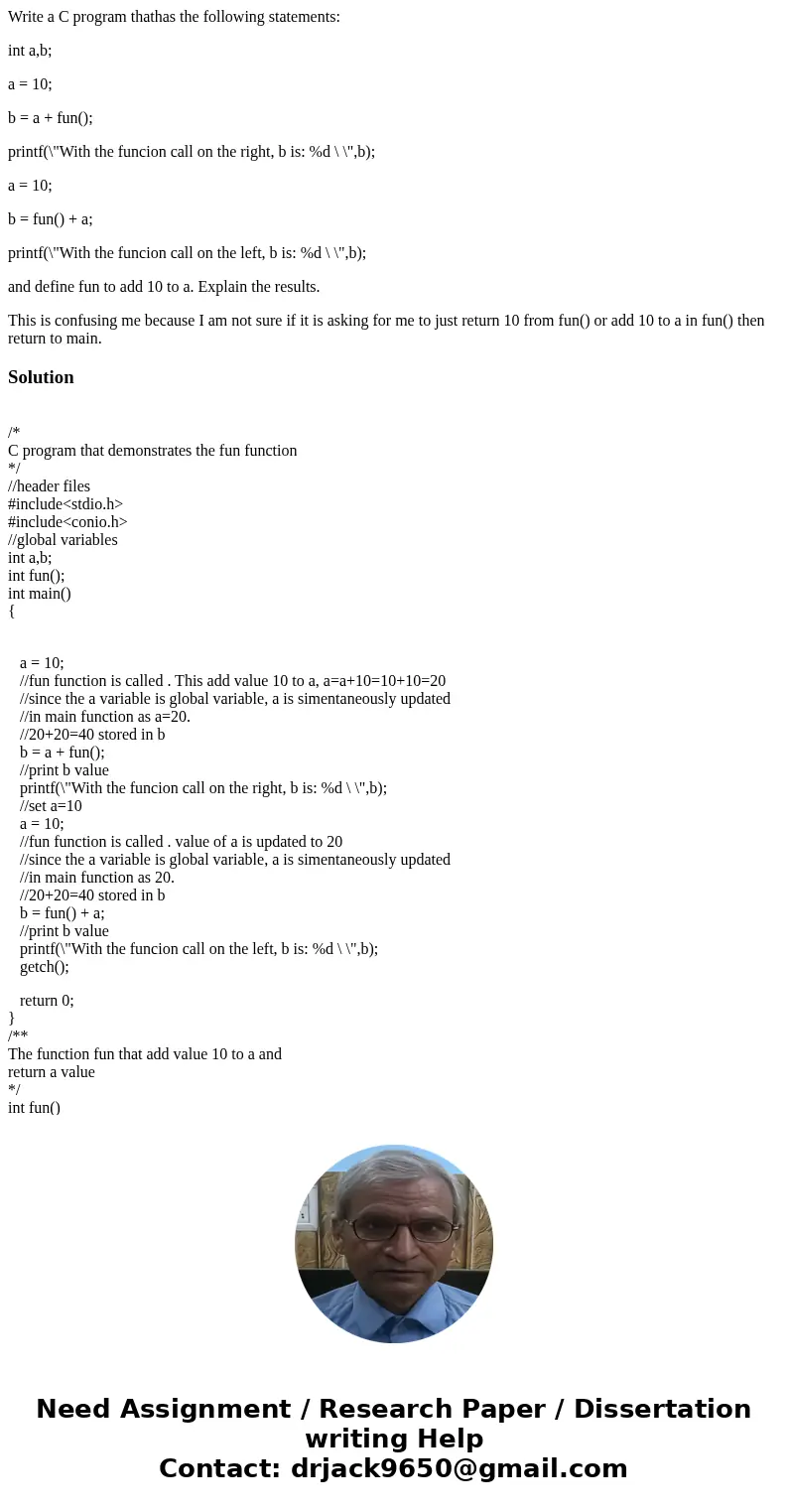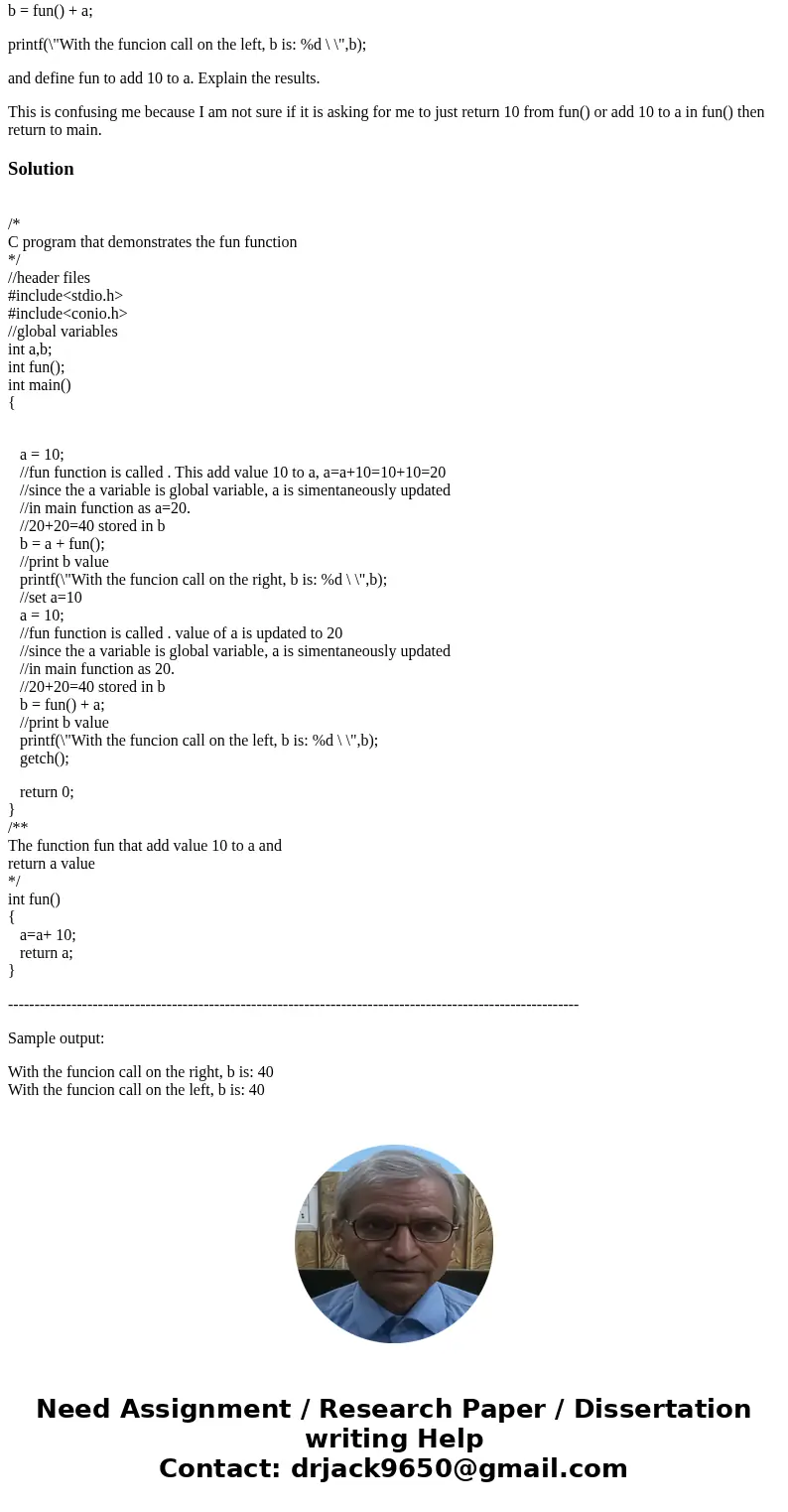Write a C program thathas the following statements int ab a
Write a C program thathas the following statements:
int a,b;
a = 10;
b = a + fun();
printf(\"With the funcion call on the right, b is: %d \ \",b);
a = 10;
b = fun() + a;
printf(\"With the funcion call on the left, b is: %d \ \",b);
and define fun to add 10 to a. Explain the results.
This is confusing me because I am not sure if it is asking for me to just return 10 from fun() or add 10 to a in fun() then return to main.
Solution
/*
C program that demonstrates the fun function
*/
//header files
#include<stdio.h>
#include<conio.h>
//global variables
int a,b;
int fun();
int main()
{
a = 10;
//fun function is called . This add value 10 to a, a=a+10=10+10=20
//since the a variable is global variable, a is simentaneously updated
//in main function as a=20.
//20+20=40 stored in b
b = a + fun();
//print b value
printf(\"With the funcion call on the right, b is: %d \ \",b);
//set a=10
a = 10;
//fun function is called . value of a is updated to 20
//since the a variable is global variable, a is simentaneously updated
//in main function as 20.
//20+20=40 stored in b
b = fun() + a;
//print b value
printf(\"With the funcion call on the left, b is: %d \ \",b);
getch();
return 0;
}
/**
The function fun that add value 10 to a and
return a value
*/
int fun()
{
a=a+ 10;
return a;
}
------------------------------------------------------------------------------------------------------------
Sample output:
With the funcion call on the right, b is: 40
With the funcion call on the left, b is: 40


 Homework Sourse
Homework Sourse